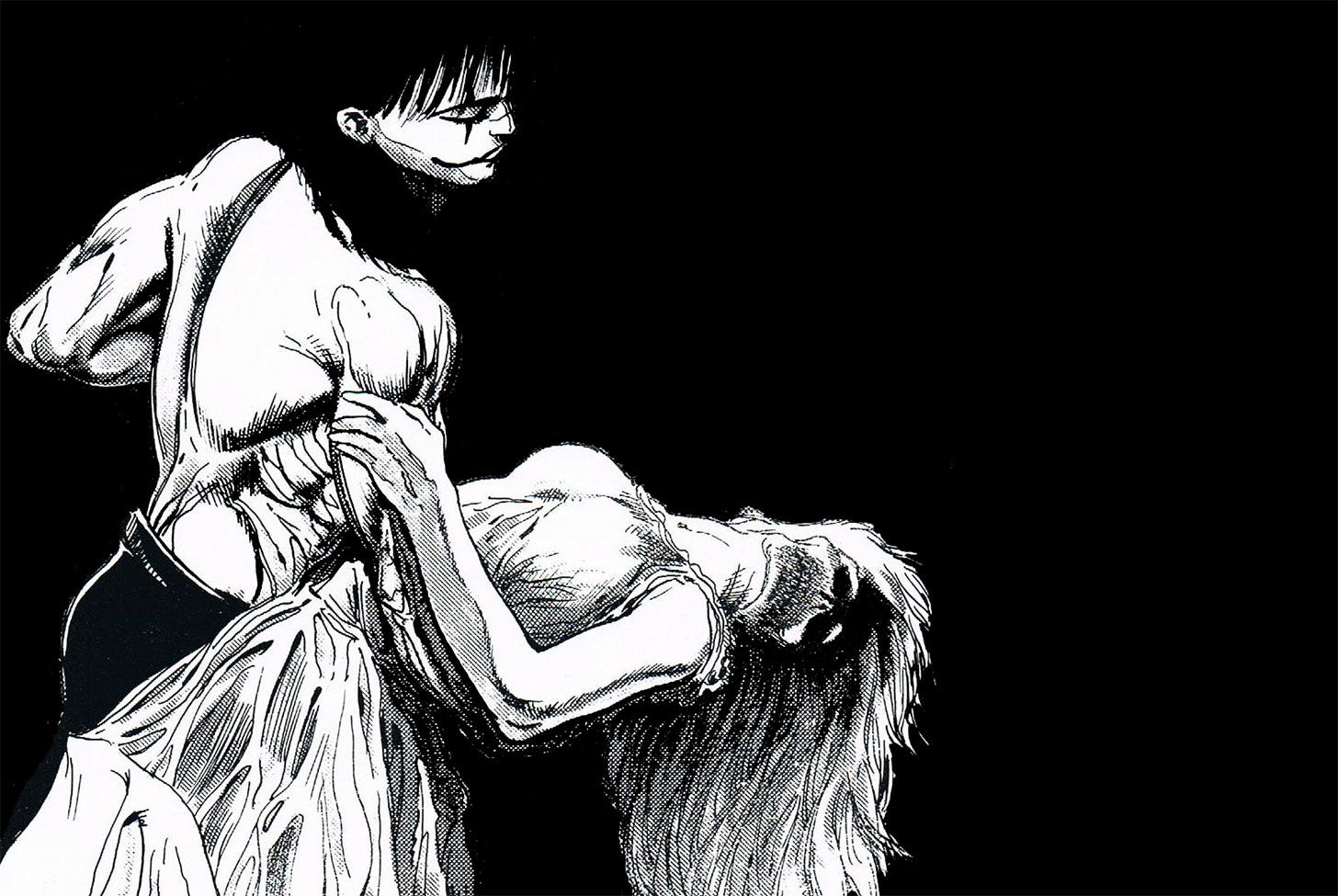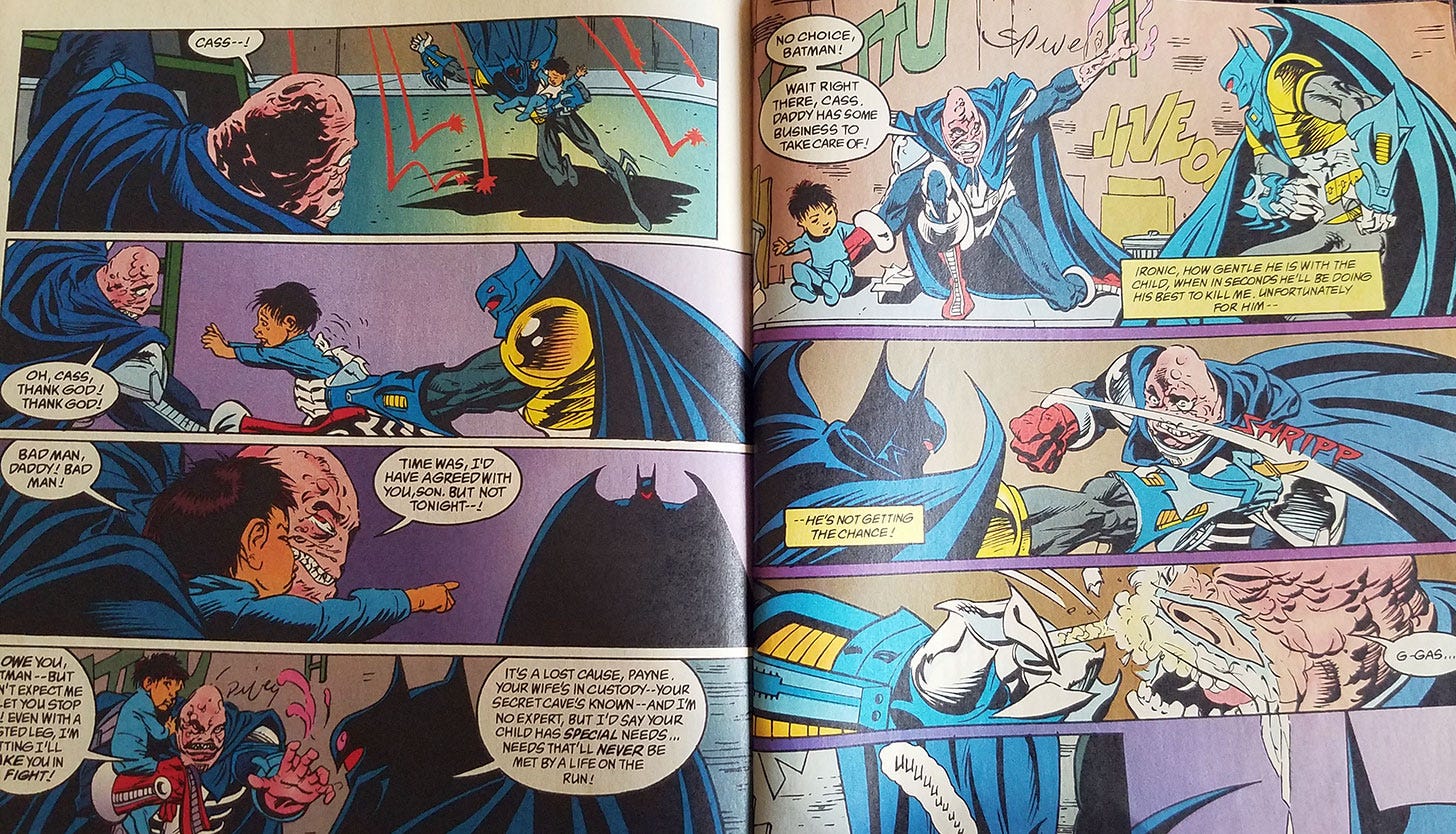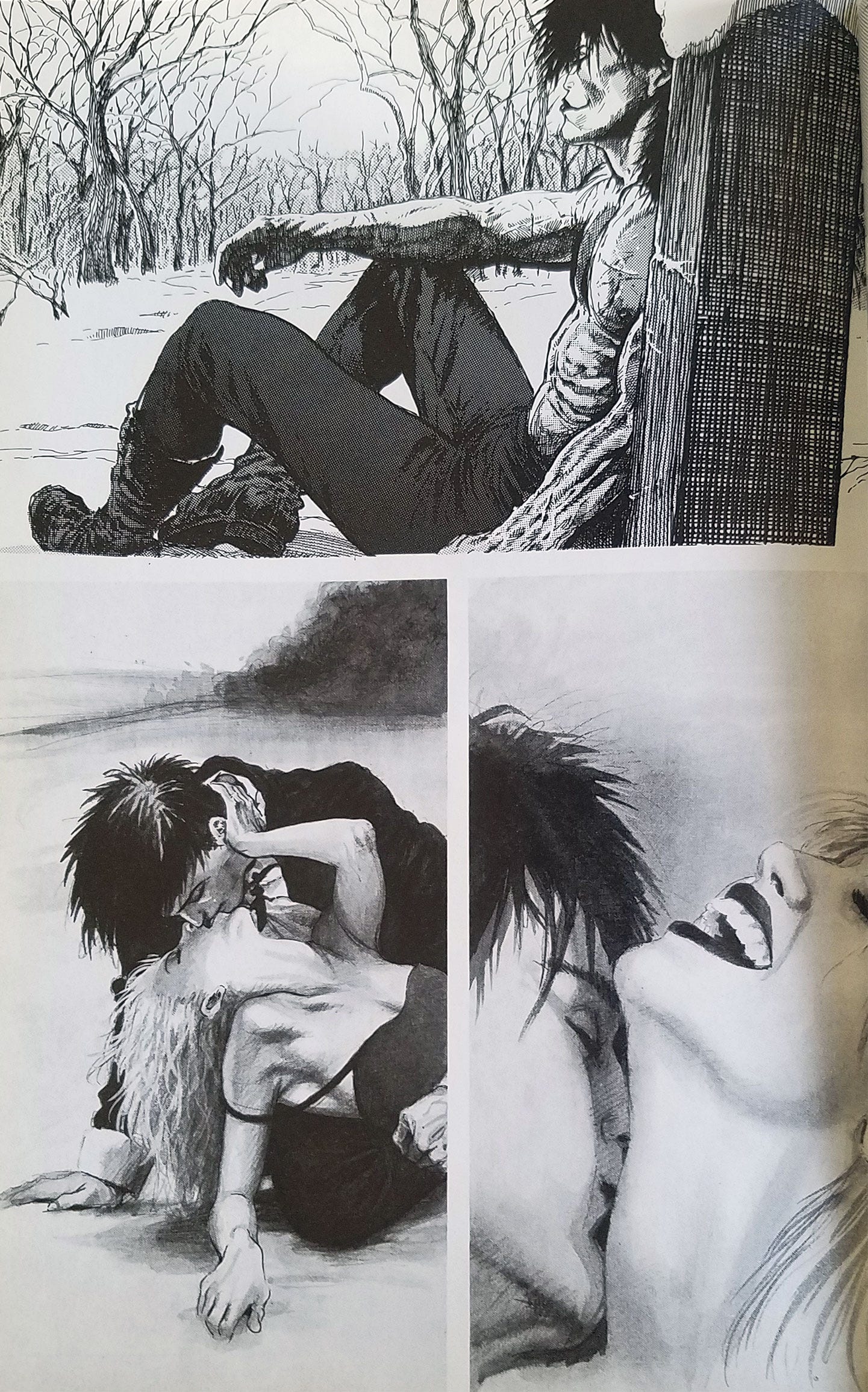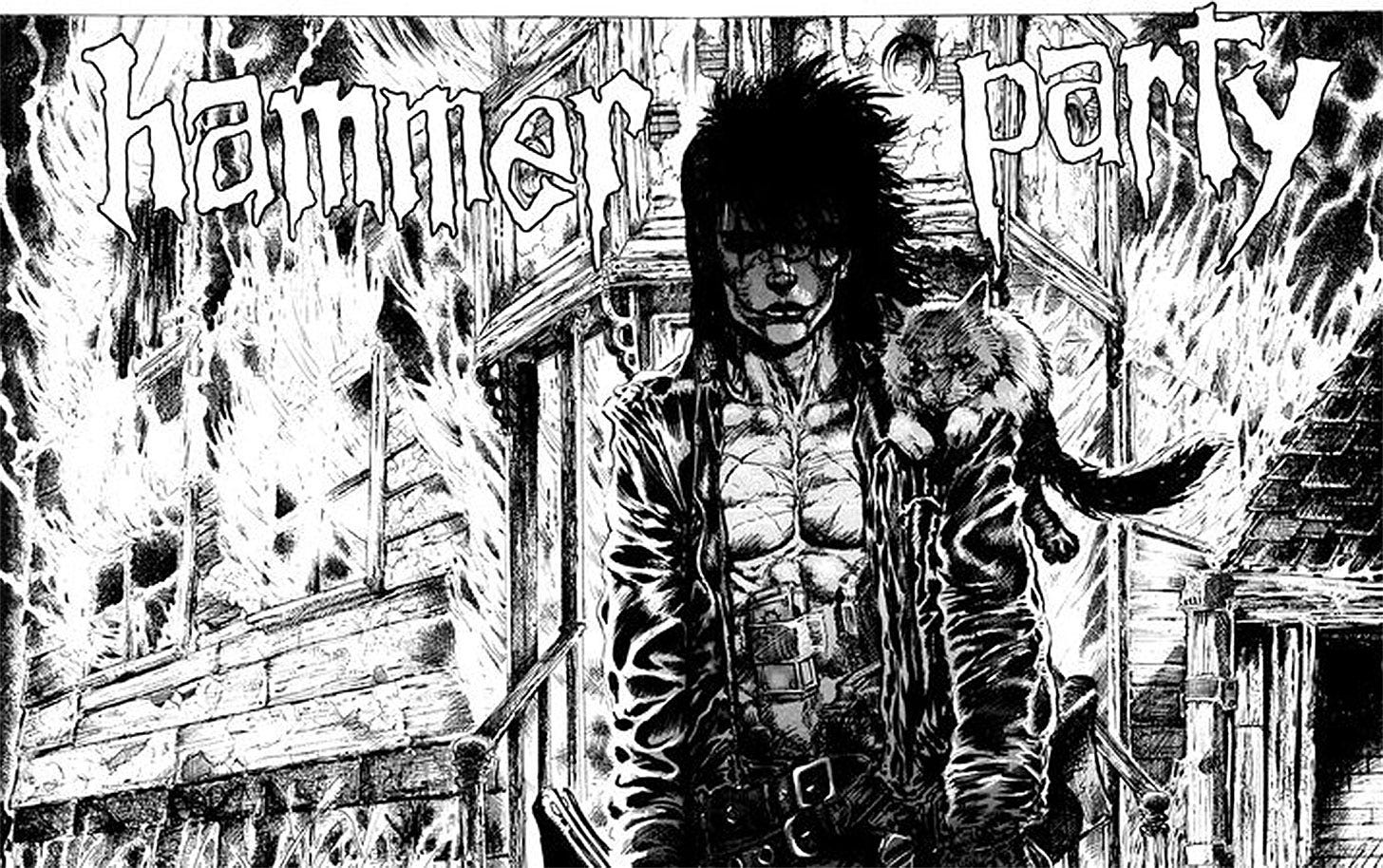Field Notes: James O'Barr's 'The Crow'
Some thoughts on tragedy, catharsis, and legacies
While stationed in Berlin, a 21-year-old marine named James O'Barr began drawing pages for what would eventually become The Crow - a comic book about a man who rises from the grave to seek vengeance on the thugs who murdered him and his fiancee. The plot was loosely inspired by a news story O'Barr had read while growing up in Detroit about a young couple that had been killed over a $20 engagement ring. But there was also a much more personal reason for telling this story.
O'Barr's childhood had not been a happy one. He bounced between orphanages and foster care until he was 7, at which point he was adopted. Instead of marking the end of turbulent times, things only got worse from there. Abused and neglected, he turned to comics and novels as a means of escape. And because he was withdrawn and had difficulty communicating with others, he began using art to express himself.
When he was 16, O'Barr met a girl that he described as the best thing that had ever happened to him. "Up until that point, my life kinda felt like an endurance test," He says in an interview with Bridget Baiss for her book The Crow: The Story Behind The Film, "And I felt like I finally got to the end of it. Good things were finally gonna start happening for me." The couple dated for three years and were engaged to be married. A few weeks before her 18th birthday, she was killed by a drunk driver.
O'Barr's anger and grief threatened to destroy him. Heartbroken and adrift, he joined the military in hopes of regaining some sense of direction. Instead, the experience only amplified his pain. The poison had to be purged. And so, it found its way into The Crow.
In the wake of my last post about The Myth of The Tortured Artist, O'Barr's been on my mind quite a bit. Because whenever he talks about the experience of making The Crow, it's clear that it was not the catharsis he'd been hoping for. In fact, the process was so painful for him that he could only handle it in small doses. It would take six years to complete. That's an awfully long time to spend with your demons. As a result, once it was over, O'Barr felt like he was in an ever darker place than when he'd started.
Unfortunately, tragedy would continue to entwine itself in The Crow's legacy. The 1994 film adaptation was overshadowed by an accident during its production that resulted in the death of its star, Brandon Lee. O'Barr and Lee had grown close over the course of filming and even after Lee's family urged them to finish the movie, O'Barr found it nearly impossible to continue. It was only because of how proud they all were of Brandon's work that he forced himself to soldier on. But even still, another chance for catharsis had been stolen.
Because of its subject matter and the real-life tragedies that were synonymous with it, The Crow attracted a lot of fans who were in a similarly dark place. Which is something O'Barr admits he initially struggled with. Here's an excerpt from an article that appeared in The Baltimore Sun back in 1994:
Mr. O'Barr frequently is confronted by readers who, for whatever reason, have latched onto "The Crow" as a symbol for the pain in their own lives. Many are compelled to share their sorrows with the man who spoke to them, reached them, through his book. Mr. O'Barr has heard all the stories, but says he never quite knows what to say.
"Sometimes I feel like the world's misery dumpster," he says. "I hear every sad story in the world, like I have some kind of an answer or antidote. And I don't! I'm asking the same questions as everyone else.
"I really don't know what to say to these people, other than 'Just hang in there and keep fighting -- someone cares about you, somewhere.' "
I think in a lot of ways, The Crow became a golden goose and an albatross for O'Barr. I was never one of those fans waiting to meet him and share their story, but that's only because I was also a really shy kid. Even if I'd had the nerve, I know I would only have echoed sentiments he’d probably already heard thousands of times...
I was 13 when I discovered The Crow. That movie, its soundtrack, and O'Barr's comic all entered my life around the same time and made a profound impact. It was something that found me at the exact right moment. If it had been any sooner or even just a couple of years later, it would not have hit the same way.
When it comes to the comic, here's what the other books I was reading at the time looked like...
And this is what The Crow looked like...
The present-day events were depicted in such striking and visceral detail. In contrast, a lot of the flashbacks and dream sequences utilized this much softer ink-washing technique I'd never seen before. There were others that were just pencil reproductions.
In between chapters, there were lyrics from bands like Joy Division and The Stooges and poetry from writers like Arthur Rimbaud and Jim Carroll. The entire presentation of it was unlike anything I'd ever seen — a glorious mix of punk rock, German expressionism, Frank Frazetta, and Japanese anime.
I didn't know comics could do this. This was something that embraced and challenged the medium. And that's the thing about The Crow — the film adaptation is great (it was my favorite movie all through high school), but it works because of its deviations from the source material, not in spite of them. It's very much its own thing. The comic has to be a comic. It's the only way that version of the story really works.
Now, the way The Crow's iconography was later co-opted and commodified by the likes of Hot Topic and even professional wrestling may have diluted its cultural cache, but make no mistake — a lot of what O'Barr was doing with that book was truly revolutionary. It's not just that it didn't look like other comics, it also didn't feel like them.
I'll be honest, as an adolescent boy, the initial hook was the thrill of seeing blood, boobs, and curse words in a comic book. But you know what? There was so much of that Grimdark shit littering shelves at the time and most of it was so superficial that it really had nothing to offer beyond the taboo nature of its depravity. There was something a lot more honest and vulnerable about The Crow. Even before I knew the story behind its creation, I could sense that this was all coming from a very genuine place. It was a raw nerve and a live wire.
And what can I say? As a kid struggling to process his own anger and feelings of isolation, it really spoke to me. And in a way, it was also oddly comforting — which is something I wish more parents understood about teenagers. I remember my Dad trying to blame my depression and misanthropic attitude on the media I consumed. He called horror movies a quagmire and said that if I stopped watching them, I'd stop sinking into those feelings. The same went for music. If I quit listening to bands that were so angry and morose, I'd be happier.
But you know what's really depressing when you feel lost and alone? Someone else's happiness. A cheery song doesn't lift your spirits, it rubs salt in the wound. What I didn't know how to articulate at the time was that I wasn't wallowing, I was processing. The movies, music, and comics that I was drawn to were about confronting pain instead of succumbing to it.
When you're left to wonder if anyone's ever felt the way you feel, the right piece of art will respond with a definitive yes. It will reassure you that you're not alone.
That's what remains most striking to me about The Crow. In my early 20s, I lost someone very close to me. Even though I'd re-read this comic numerous times by that point, it was like seeing it for the first time. It gave me permission to cry over a broken heart, to be angry at the senselessness of it all, and to find the strength to get back up after being repeatedly knocked down.
And so what I hope O'Barr understands now is that all those people who come up to him and share their experiences... I don't think they're looking for answers or advice. I think they're just trying to say what I would say...
Thank you.
Thank you for finding me when I needed you most. Thank you for creating something that helped me look for the light instead of being swallowed by darkness. It may be mired in tragedy, but the true legacy of The Crow is that it’s not about death, it's about love. It's about life.
Take care, friends. Talk to you soon.










I also have an attachment to The Crow comic book. It’s darkness is weirdly kind of beautiful. Although I couldn’t appreciate the feeling of loss from the same perspective, I was still able to relate in a different way.